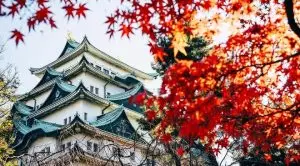 The beginning of the week saw the 2018 regular Diet session start in Japan, with the country’s Prime Minister Shinzo Abe calling for the political parties to pay attention at a number of issues of great national importance.
The beginning of the week saw the 2018 regular Diet session start in Japan, with the country’s Prime Minister Shinzo Abe calling for the political parties to pay attention at a number of issues of great national importance.
As Casino Guardian reported, the ordinary session started on Monday, with a number of political goals for the legislature to be considered, including a possible revision of the country’s Constitution that could lead to the first Japanese referendum, the Prime Minister’s “work-style reform” and the country’s gambling sector, especially in terms of casino integrated resorts.
This year’s regular 5-month Diet session came after the fall session that started in September was interrupted by the snap election which was called by Prime Minister Abe. Then, a special Diet session kicked off in October 2017, but no significant political issues were clarified at the time.
Now, this year’s Diet session is aimed at finally putting some priorities of paramount importance on the agenda, with the so-called integrated casino resorts being one of them. At the beginning of the 2018 ordinary legislative session, Prime Minister Abe revealed that Japan’s Government is to submit the Integrated Resorts Implementation Bill to the parliament.
Japanese Integrated Casino Resorts Raise Some Questions
 With the country’s trying to make its appearance more “tourist-oriented” by adding the Integrated Casino Resorts to its amenities, a number of questions are being raised.
With the country’s trying to make its appearance more “tourist-oriented” by adding the Integrated Casino Resorts to its amenities, a number of questions are being raised.
First, the casino gambling market of Japan has been officially opened only recently. The Japanese Parliament passed the “Integrated Resort Promotion Law” in December 2016, which expectedly caused some controversy. At the time when the country took the step to opening its casino sector, some market experts have shared their concern that Japan was a little bit too late to do that.
Despite the fact that these concerns do not sound so illogical from a certain point of view, it is important to note that Japan’s new Integrated Resorts will aim to attract the same high-roller customers who have already been placing bets in countries and territories such as Australia and New Zealand, Macau, South Korea, Singapore and the Philippines. In addition, considering the fact that the country’s has been reviewing some options for tourist packages, Japan could soon turn out to be ahead of competition, taking advantage of its geographical location and cultural heritage.
In addition, the Japan National Tourism Organization confirmed that according to the compiled and analysed data for October and November 2017, there was an average year-on-year increase in the number of foreign visitors to the country of 19% for the first 11 months of last year.
Another major concern is related to some administrative issues and especially with the bureaucracy’s possible impact on the casino market of the country. As far as the regulation of casino resorts is concerned, various suggestions have emerged, including limited access of local residents to gaming floors, ATMs bans, tax-identification numbers implementation , etc. Still, considering the fact that a number of large US and UK gambling firms have been interested in entering the Japanese casino market, both American and British lobby groups have been trying to make sure that the country’s legislators would not get too far with their efforts to guarantee a well-regulated and safe gambling market.
Last but not least, the location of the Integrated Casino Resorts is another issue that has been raised some concerns. As Casino Guardian has already reported, the cities of Yokohama and Osaka have been considered as the most probable locations for the first two integrated resorts that are to be established in the country. However, some market analysts have suggested that Japan should also consider the Fukuoka or the Tohoku regions.
On one hand, Fukuoha is known as the commercial centre of the island of Kyushu, not to mention the fact that its geographic location makes its connections with some major Asian metropolises such as Beijing, Seoul and Shanghai easier. On the other hand, the region of Tohoky suffered a major blow due to the 2011 earthquake and the Fukushima nuclear crisis and local economy needs to be stimulated.
- Author


